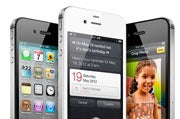5 Ways Smartphones Are Better than Laptops or Tablets
Mobile computing is a way of life. The world doesn’t stop just because you get up and leave your desk, and you need tools to stay engaged and get things done no matter where you are.
Laptops, tablets, and smartphones are each capable mobile computing devices in their own way, but each also has distinct benefits and disadvantages. If you’re heading out the door, and you only want to grab one device, which one will it be?
Here are five reasons that the smartphone is a better choice for mobile computing than a laptop or tablet:
Wherever you go, there it is. It is in your pocket or purse. It sits on a table next to your bed at night. Whether you want to surf the Web, check email, see what the weather is like, or make a call, the smartphone is almost always within arm’s reach. In fact, odds are fair that your smartphone will go with you even if you choose to take a laptop or tablet. The question is, “Would the smartphone be enough on its own, or do you also need to bring along a laptop or tablet?”
Connectivity
Smartphones are mobile phones first, and portable computing devices second. While some tablets, and even a few laptops come equipped with the technology to connect with cellular networks, it is a certainty with smartphones. As ubiquitous as Wi-Fi networks seem to be these days, there are still vast expanses where there is no wireless network -- but your smartphone can still get a 3G (or maybe even 4G) signal. Many smartphones can also act as a Wi-Fi hotspot, enabling you to share the cellular data connection with your laptop or tablet to connect from virtually anywhere.
Voice Calls
Try that with your laptop or tablet. I suppose you can at least make Skype or Google Voice calls from a laptop or tablet, but the smartphone stands alone among these three as a communications device. Sometimes the best way to clarify project requirements, or coordinate resources is with an actual conversation, and the smartphone ensures that you can make or receive calls from virtually anywhere.
Text Messaging
 Along with voice calls, smartphones also enable communication via text messaging. It is faster than email, but less intrusive than a voice call. It works virtually anywhere without requiring that you be logged in to anything in particular. It is a convenient way to keep others informed, or get answers to simple questions, and you can do it with just a few swipes and taps rather than having to boot up a computer.
Along with voice calls, smartphones also enable communication via text messaging. It is faster than email, but less intrusive than a voice call. It works virtually anywhere without requiring that you be logged in to anything in particular. It is a convenient way to keep others informed, or get answers to simple questions, and you can do it with just a few swipes and taps rather than having to boot up a computer.
Versatility
The smartphone is the new Swiss Army knife. It does a little bit of everything. Just as the Swiss Army knife is a great knife, but makes a questionable saw or pair of scissors, the smartphone is better at some things than others. But, it is nice to know that it can be a phone, or a camera, or a portable music player, or a GPS device, or an e-reader, or just about anything else you need it to be. It may not be the best at most of those functions, but it is nice to know that it can at least do them, and that you have it with you virtually 24/7.As great as these reasons may seem, there really is no “best” mobile computing device for everyone. In fact, there probably isn’t even a mobile computing device that is best for you in all cases. You have to consider the scenario(s) in which you intend to use the mobile device, and choose the best tool for the job.

No comments:
Post a Comment